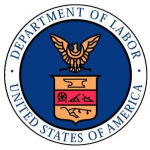- Industri: Government; Labor
- Number of terms: 77176
- Number of blossaries: 0
- Company Profile:
The measure of efficiency in production. The comparison of resources used in creating goods and services. If the same resources that were used in the past produce more goods and services, productivity has increased.
Industry:Labor
Unions engaged in political action at least as far back as the 1820s, when they demanded universal free public education and abolition of imprisonment for debt as their major social reform issues. Today, AFL CIO and independent unions expend a substantial amount of money and effort in the promotion of their political causes. Their rationale is that what is gained at the bargaining table can be taken away from unions through legislation. AFL CIO's formal political organization which functions at the national, state, community and local union level is the Committee on Political Education (COPE).
Industry:Labor
The company considered itself the father of its employees and as such had the responsibility of regulating their lives through company houses, stores, hospitals, theaters, sports programs, churches, publications, and codes of behavior on and off the job. Paternalism was also prevalent in public employment. Teachers in 1915 were not permitted to marry, keep company with men, travel beyond the city limits, smoke, dress in bright colors, or wear skirts shorter than two inches above the ankles.
Industry:Labor
The lowest rate of pay an employer is allowed to pay under the law or a union contract.
Industry:Labor
Attempts by an impartial third party to get labor and management to find agreement during a dispute.
Industry:Labor
The major grievance of public employees was the indignity and insecurity fostered by the political patronage system which ruled government employment. They wanted a system where they would be hired and promoted on their merit. The merit system was introduced by passage of the Civil Service Act of 1883.
Industry:Labor
In 1889 the International Socialist Congress meeting in Paris fixed May 1 as the day to publicize the eight hour day because America's AFL was going to hold an eight hour day demonstration on May 1, 1890. Since that time May Day has become a major celebration in communist countries. President Eisenhower in 1955 proclaimed May 1 as "Loyalty Day. "
Industry:Labor
Union descriptions of tragic events in labor history. Examples include Chicago's Memorial Day Massacre where ten steelworkers were shot dead and over eighty were wounded by police on May 30, 1937. There was the Hilo, Hawaii, Massacre of 1938 where nearly fifty unionists were shot or bayonetted by police while sitting on a government pier protesting the unloading of a struck ship. Also, the Ludlow Massacre of 1914 which included the killing of eleven children and two women by the state militia.
Industry:Labor
The Consumer Price Index prepared by the U. S. Bureau of Labor Statistics. The Index measures changes in the cost of living month by month, year by year.
Industry:Labor
